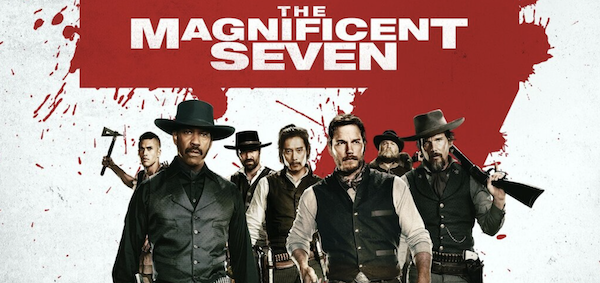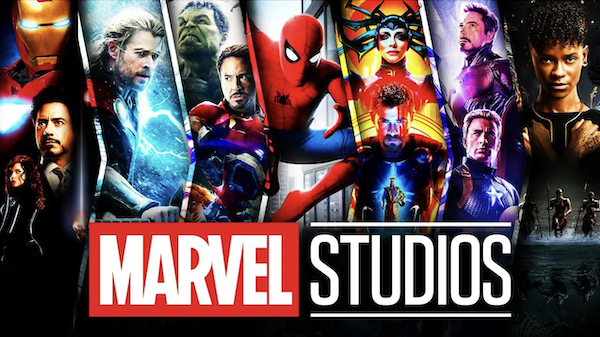Market scorecard
US markets wrapped up the week on a strong note after a better-than-expected jobs report. The economy added 139 000 jobs last month, slower than before, but enough to ease fears of an imminent recession.
For the week, the S&P 500 gained 1.5%, and the Nasdaq Composite led the pack with a 2.2% jump. The markets are now up five out of the past seven weeks.
In company news, online broker Robinhood Markets notched its sixth straight day of gains as traders bet it might soon join the S&P 500. Elsewhere, Boeing is back in business with China. The aerospace giant resumed deliveries of commercial jets to the country for the first time since April.
In summary, the JSE All-share closed down 0.05%, but the S&P 500 rose 1.03%, and the Nasdaq was 1.20% higher. Very nice!
Our 10c worth
One thing, from Paul

Vestact has had a very good decade. We managed to get into all of the so-called Magnificent 7, before they got that name. We've thrashed the S&P 500, after all costs.
The cornerstone of our investment philosophy is cheerful optimism. We buy the stocks that we think are going to dominate their industries in the future, then we wait patiently.
According to the first principles of equity investing, the value of a stock is the sum of its future cash flows, in other words, its ability to generate profits in the future.
The trouble is, how can one know in advance how these businesses will evolve? No one can see around corners.
Picking the right stocks is only half the challenge, staying with them when they go through a bad patch is the other half.
We can't rest on our laurels. The past is the past, what will happen next? Anyway, so far, so good.
Byron's beats

I saw a headline that social media site Reddit was suing AI company Anthropic for stealing their data to train models. I am not interested in the detail of that case, but it did get me thinking about how well-positioned some of our recommended stocks are in terms of how much data they have access to.
Meta has over 3 billion monthly active users, Apple has over 1 billion connected devices, Google has 8.5 billion searches a day, Amazon processes 12.9 million transactions a day, Tesla's fleet drives on average 70 billion miles a year and Microsoft has over 400 million Office suite subscribers.
AI requires a lot of historic data to chew through, creating tokens that are redeployed to churn out quality results. The companies mentioned above already own some very useful information.
Michael's musings

Temu, the app that allows you to buy lots of cheap stuff directly from China, has seen a significant drop in daily users in the US. Research firm, Sensor Tower, estimates that the number of buyers has dropped by 48% since March. Ouch!
The biggest reason is that tariffs are making consumers pay more for their goods - higher prices means lower demand. This is a real-time experiment about what happens to trade when tariffs are introduced.
Temu was exploiting a loophole in international shipping codes which allowed any package valued under $800 to arrive tariff-free in the US. This loophole gave Temu a massive advantage over large retailers, who, despite offering the exact same products, would have to pay an extra tax, resulting in higher prices for their goods.
The loophole made no sense, but I don't agree with tariffs in general. Temu is the perfect example of what happens when countries put barriers up.
Bright's banter

Back in 2009, Disney pulled off one of the greatest deals in entertainment history, and almost no one realised it at the time. They bought Marvel for $4 billion.
Fast forward to 2023, and just the Marvel Cinematic Universe (MCU) films alone have grossed over $29 billion at the global box office. That doesn't include the mountains of cash made from toys, T-shirts, licensing deals, Disney+ subscriptions, and theme park attractions.
It's easy to forget that when Disney bought Marvel, the MCU had barely started. Iron Man had just come out in 2008 and was a hit, sure, but nobody knew it would spark a 15-year run of blockbuster after blockbuster.
Avengers: Endgame pulled in $2.8 billion by itself, becoming the second-highest-grossing movie ever. And beyond the cinema, Marvel has been a content machine for Disney+, helping the streaming platform win (and keep) subscribers with shows like Loki and WandaVision.
This success wasn't a foregone conclusion. DC Studio, a competing superhero universe owned by Warner Bros. Discovery, has been very disappointing. The genius from Disney wasn't just in buying a few superheroes, it was owning the storytelling universe. That's IP gold. And Disney turned it into an empire: movies, series, merch, theme parks, even cruise experiences. All from one modest, $4 billion deal.
Linkfest, lap it up
The more things change, the more they stay the same. Buy now, pay later, was meant to replace credit cards - Klarna releases a debit card with BNPL functionality (a credit card by another name).
Fantasy sports are on the rise. The top players are now rich and famous - Meet Justin Herzig, a fantasy sports millionaire.
Signing off
Asian markets kicked off the week in the green, with the MSCI Asia-Pacific benchmark up 0.9%, powered by tech stocks. Trade talks between the US and China get going again today in London.
In local company news, Mr Price has quietly had a strong year. The retailer grew headline earnings by 10.7%, helped by a much better second half and solid market share gains in key areas like fashion and homeware. Revenue crossed the R40 billion mark for the first time.
US equity futures are slightly in the red pre-market. The Rand is steady at around R17.77 to the US Dollar.
Well done to everyone who ran the Comrades Marathon yesterday. Your legs will be sore today, but your bragging rights will last forever.
Goodbye, from a chilly Johannesburg.